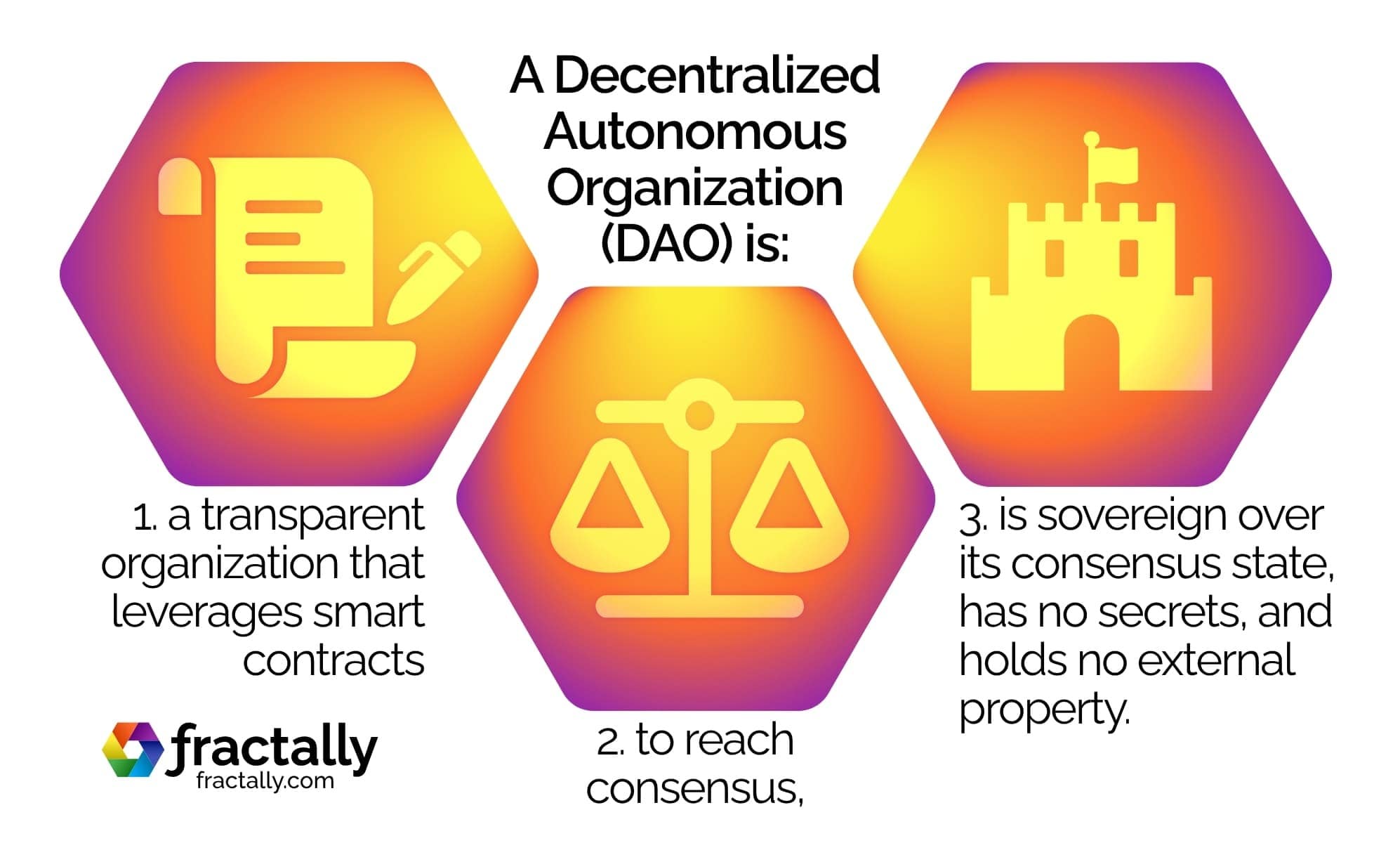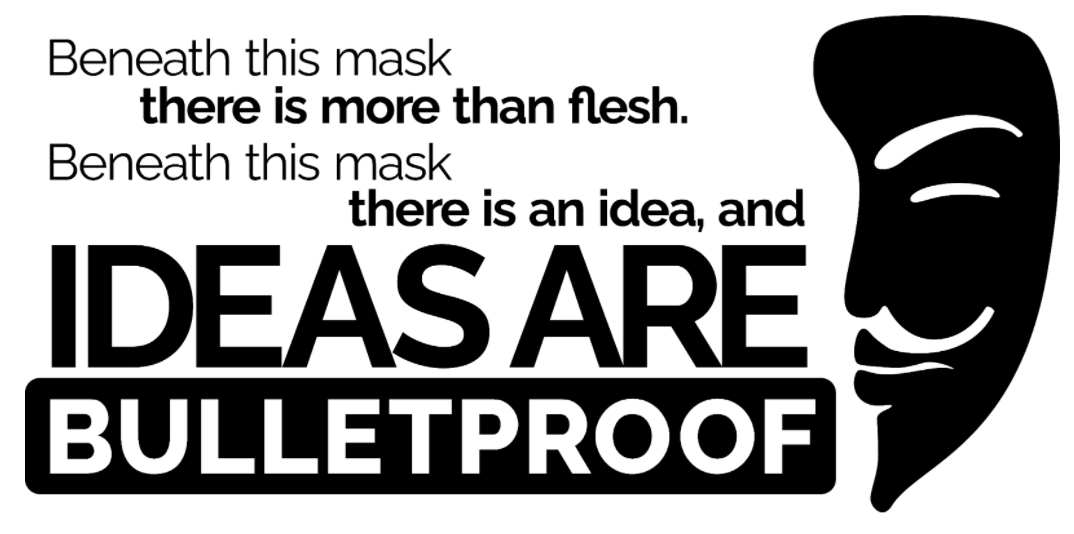/blog
Blog Posts

DAO stands for Decentralized Autonomous Organization. The description “decentralized and autonomous” was originally coined by ƒractally’s founder, Daniel Larimer, in 2013, to describe the economics of Bitcoin. Larimer described Bitcoins as “shares” in a decentralized company which issued shares in exchange for hashpower.
Bitcoin: The first DAO
If someone wanted to organize humans to autonomously produce highly efficient computer chips for performing a specific task (sha256 hashing), then it is hard to deny the success of Bitcoin. Without any governing structures or centralized coordination millions of people cooperated to build the largest distributed supercomputer in the world. This process is on “autopilot” and “unstoppable” as long as people valued the currency and respected the algorithm.
The critical ingredient to being autonomous is being sovereign over information. Bitcoin, when viewed as a company, can make no promises, hold no secrets, and hold no assets that it is not fully self-sovereign over. By “fully self-sovereign” it means they are solely subject to the Bitcoin consensus algorithm.
A DAO is therefore consensus over information and can never be destroyed unless all copies of the information are destroyed. In the digital age, destroying all copies of anything is next to impossible.
When it comes to “governing a DAO”, the information is “forked” and two copies of the information are created, each of which being fully complete, one of which has a different opinion on some part of the information. The free market, via voluntary exchange, resolves the dispute according to the value placed on each version of the consensus information. One or both sides of the fork can continue and are fully functional. This is the true test of a DAO.
We can therefore say that a DAO is pure information, the value of which is judged by the market. A DAO only depends on the freedom of speech and the open source software to deterministically interpret that speech into a shared consensus.

A DAO has no assets that can be seized, no laws it is subject to. A DAO is nothing more than a shared idea and is therefore bulletproof. If an organization depends upon secrets, then those secrets are centralized and the keeper of those secrets is not bulletproof. If an organization depends upon “shared ownership” of tangible property, then it is not a DAO, because the property could be taken or destroyed. If an organization depends upon any information it is not sovereign over, then it is not a DAO.
Ethereum’s “The DAO”
For example, “The DAO”, an Ethereum smart contract, raised a record amount of Ethereum tokens to be managed in a “collective investment scheme” governed by another token. Despite the name (“The DAO”), we contend that it was merely a smart contract operating under Ethereum. Ethereum being a DAO while, “The DAO”, was merely a transparent, smart contract operated, collective investment scheme. When the smart contract was exploited it forced the entire Ethereum blockchain to fork in order to resolve the dispute. This fork became known as Ethereum Classic.
A smart contract is only as decentralized and autonomous as it is independent. If “The DAO” had no shared state with Ethereum (the ETH balances), then there would be no way for an Ethereum fork to change “The DAO” and “The DAO” would have had to fork itself if there was any dispute.
The transparency and independence of information is what makes a DAO “autonomous”, but what makes it decentralized? A DAO is decentralized when it continues to function regardless of what any subgroup of people do. As long as some people value the consensus state of Bitcoin, someone, somewhere, will do the proof of work necessary to keep the blockchain moving forward. If, on the other hand, people only value Bitcoin because of what Satoshi or a centralized team is doing to bring value to the consensus information then it becomes centralized.
Steem, the first social media DAO, had incentives that inspired the community to fork Hive when the founding company, Steemit, was sold and the new owner attempted to take the network in a different direction. The information being transparent, combined with the ability for anyone to step up and provide services around the information is what made it decentralized and autonomous. No matter what comes, the organization will keep going.
This is what defines a DAO:
- No Secrets (e.g. communally owned private keys)
- No Legal Standing
- No Tangible or Intangible external Assets
- No Intellectual Property
- No Monopolies on Infrastructure
- Just consensus over forkable Information
If a DAO can inspire the creation of the world’s largest supercomputer powered by extremely advanced custom silicon chips, what else can a DAO do? Can it create a new legal system? Can it motivate a surge in innovation, creativity, and open source software development? Can it find cures to diseases? Can it end corruption? What if a DAO powered by the right governance process could do all these things and more? ƒractally is creating a system that we believe has the potential to revolutionize how people realize the value created with the power of collaboration.
